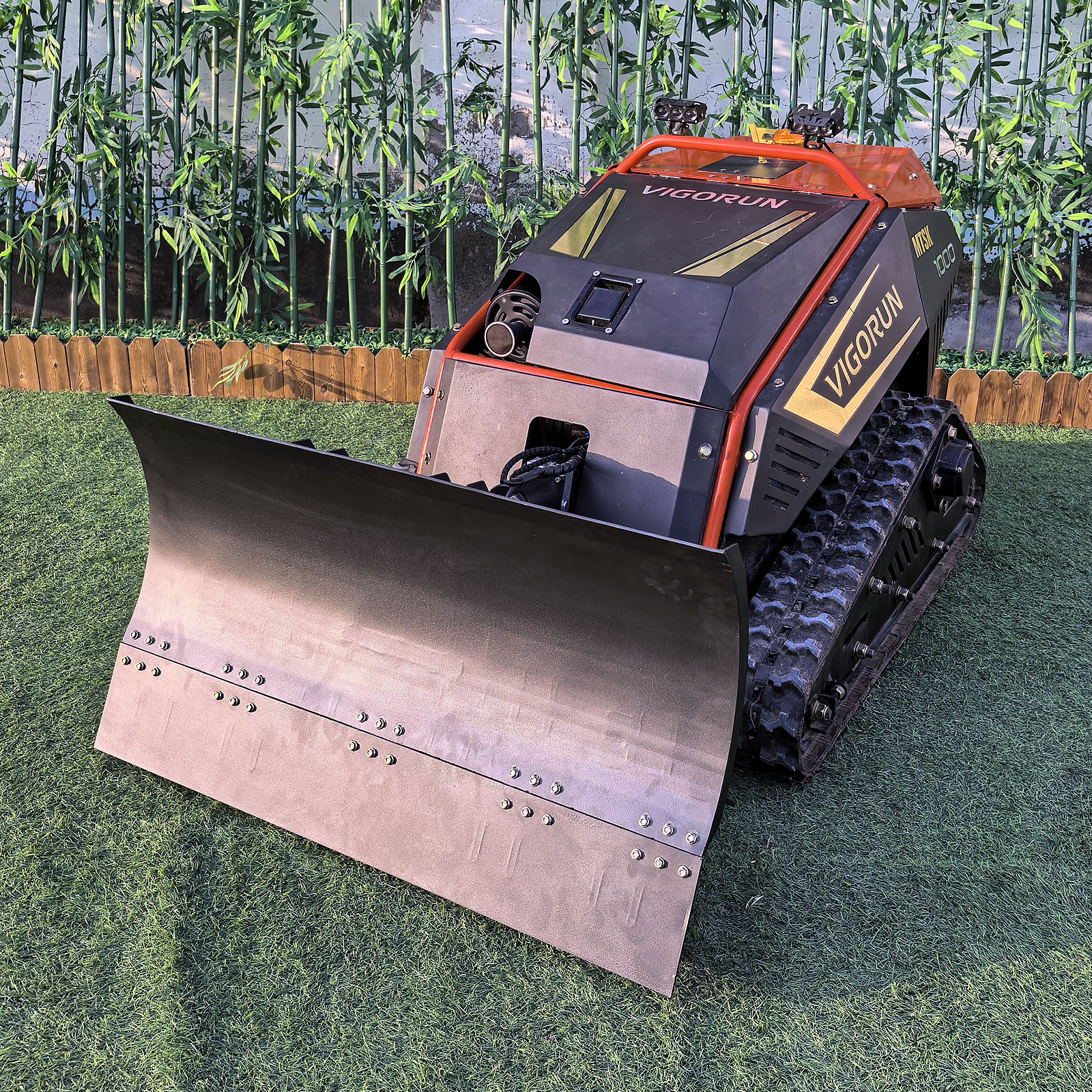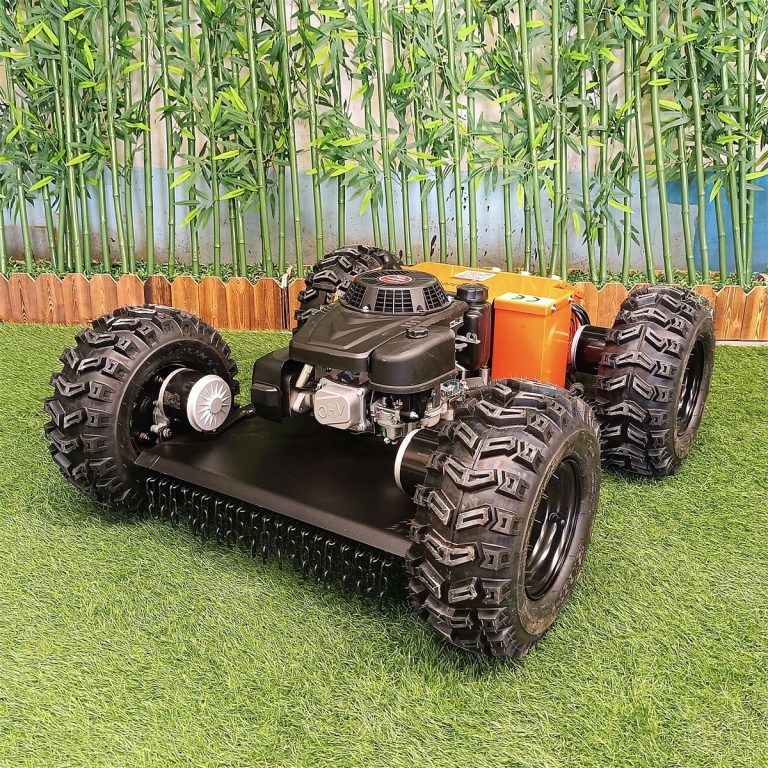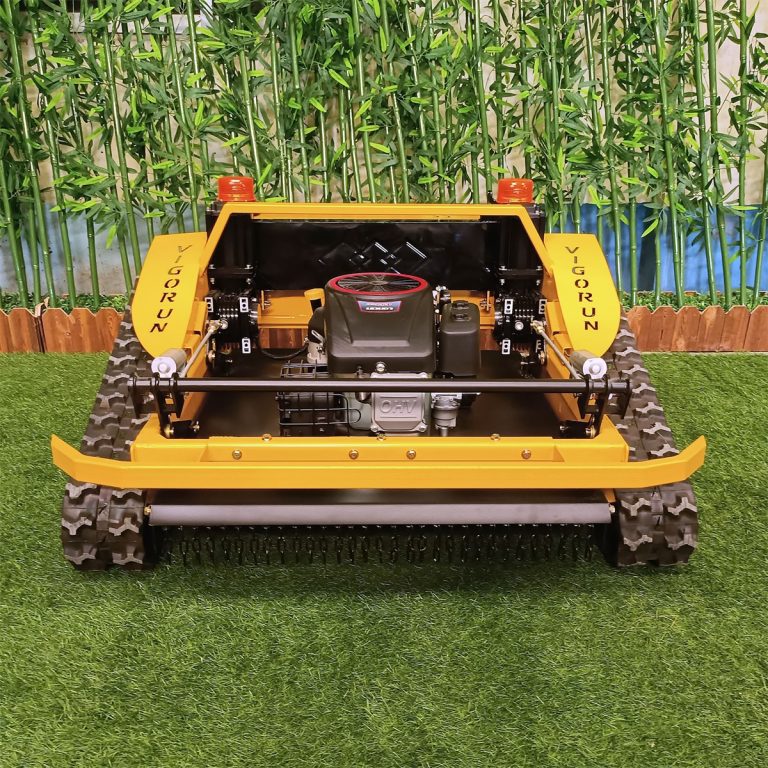Table of Contents
Powerful Performance of the EPA Gasoline Powered Engine Rechargeable Battery Tracked Radio Controlled Flail Mower
The EPA gasoline powered engine rechargeable battery tracked radio controlled flail mower is a cutting-edge machine designed for high performance in various environments. It boasts a V-type twin-cylinder gasoline engine, specifically the Loncin brand, model LC2V80FD. This robust engine delivers a rated power of 18 kW at 3600 rpm, ensuring strong performance suitable for demanding tasks. The 764cc engine provides exceptional output, making it a reliable choice for professionals in landscaping and maintenance.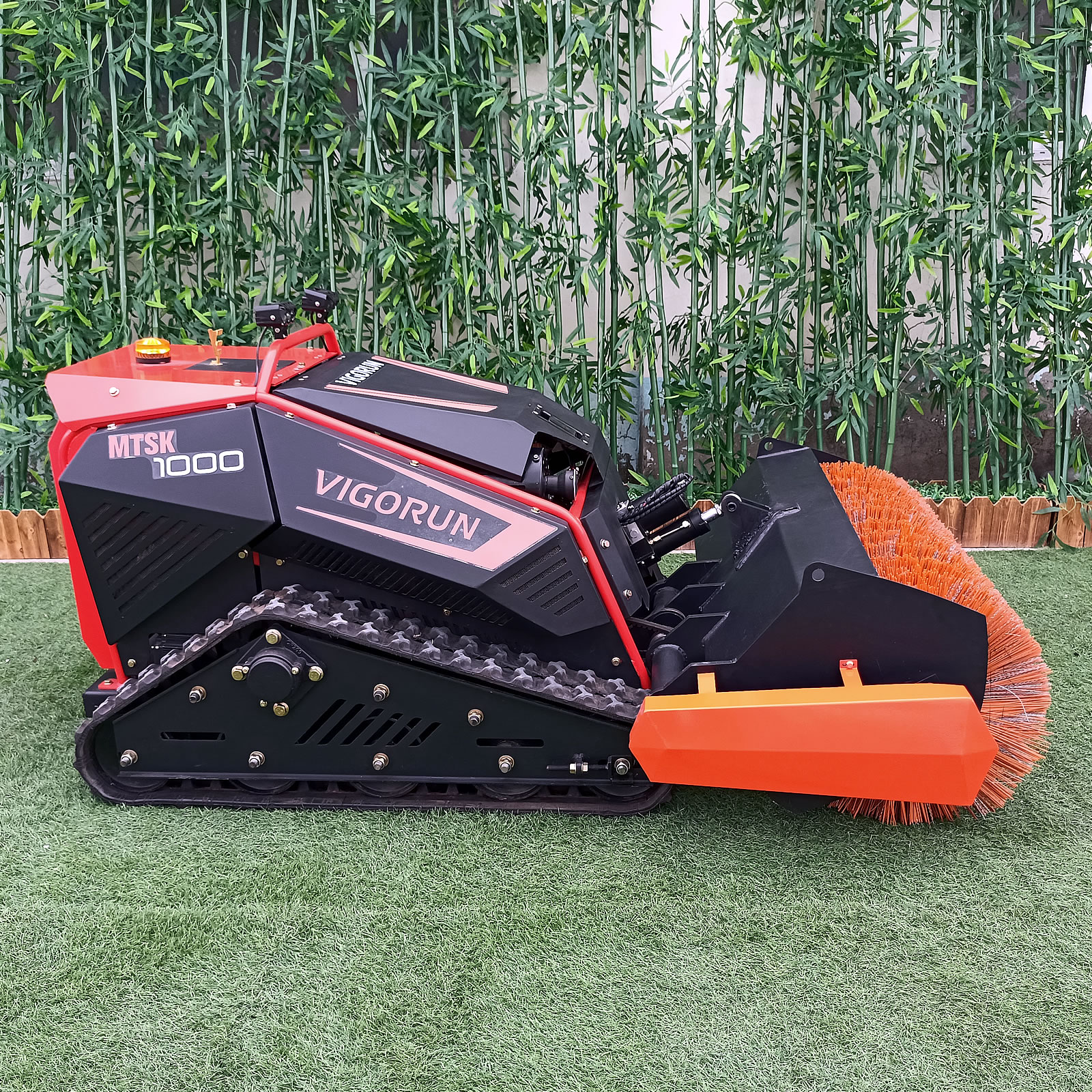
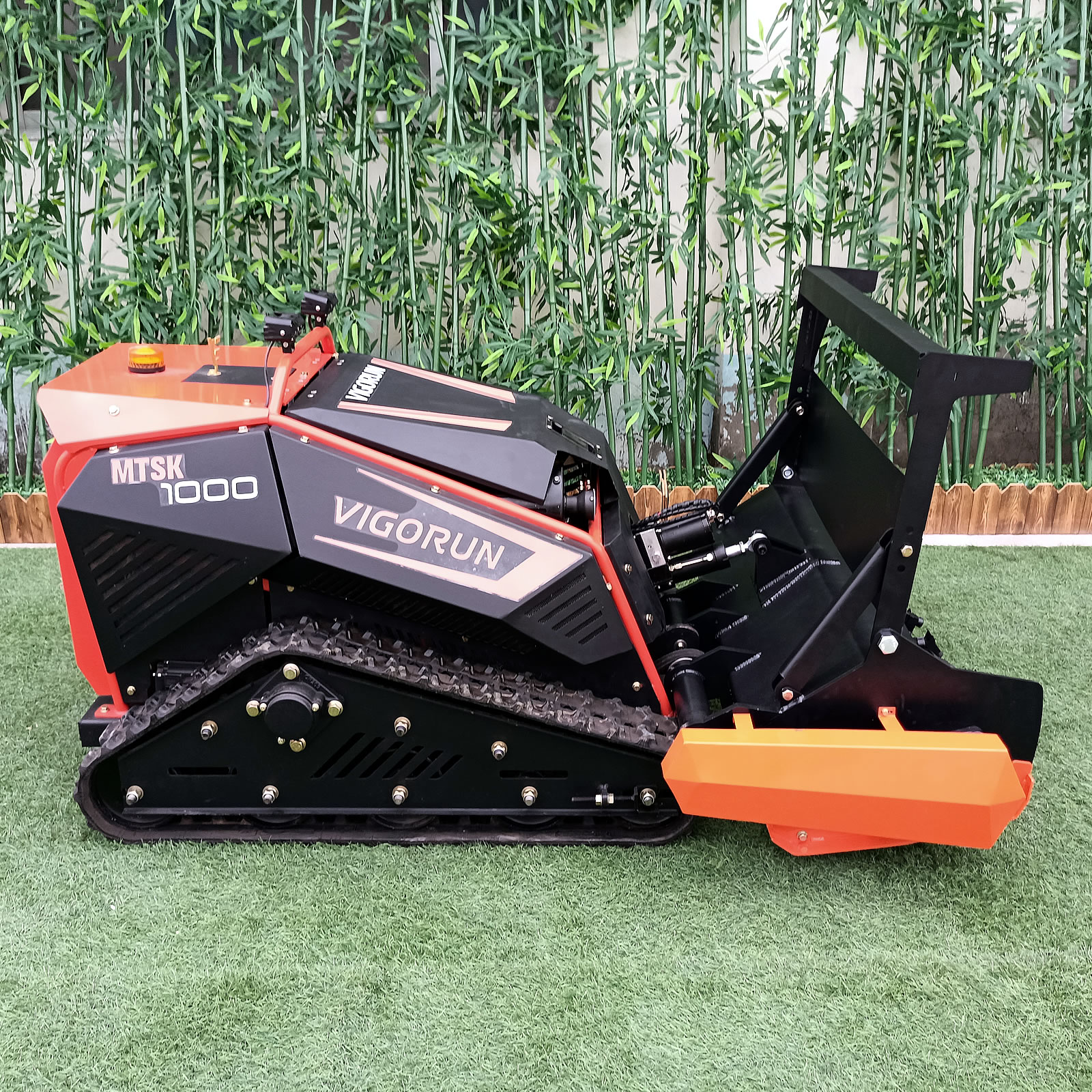 Equipped with an advanced clutch system, the engine engages only when it reaches a predetermined rotation speed. This feature not only enhances efficiency but also contributes to the overall safety and longevity of the mower. Users can trust that the machine will operate smoothly under optimal conditions, maximizing productivity on every job site.
Equipped with an advanced clutch system, the engine engages only when it reaches a predetermined rotation speed. This feature not only enhances efficiency but also contributes to the overall safety and longevity of the mower. Users can trust that the machine will operate smoothly under optimal conditions, maximizing productivity on every job site.
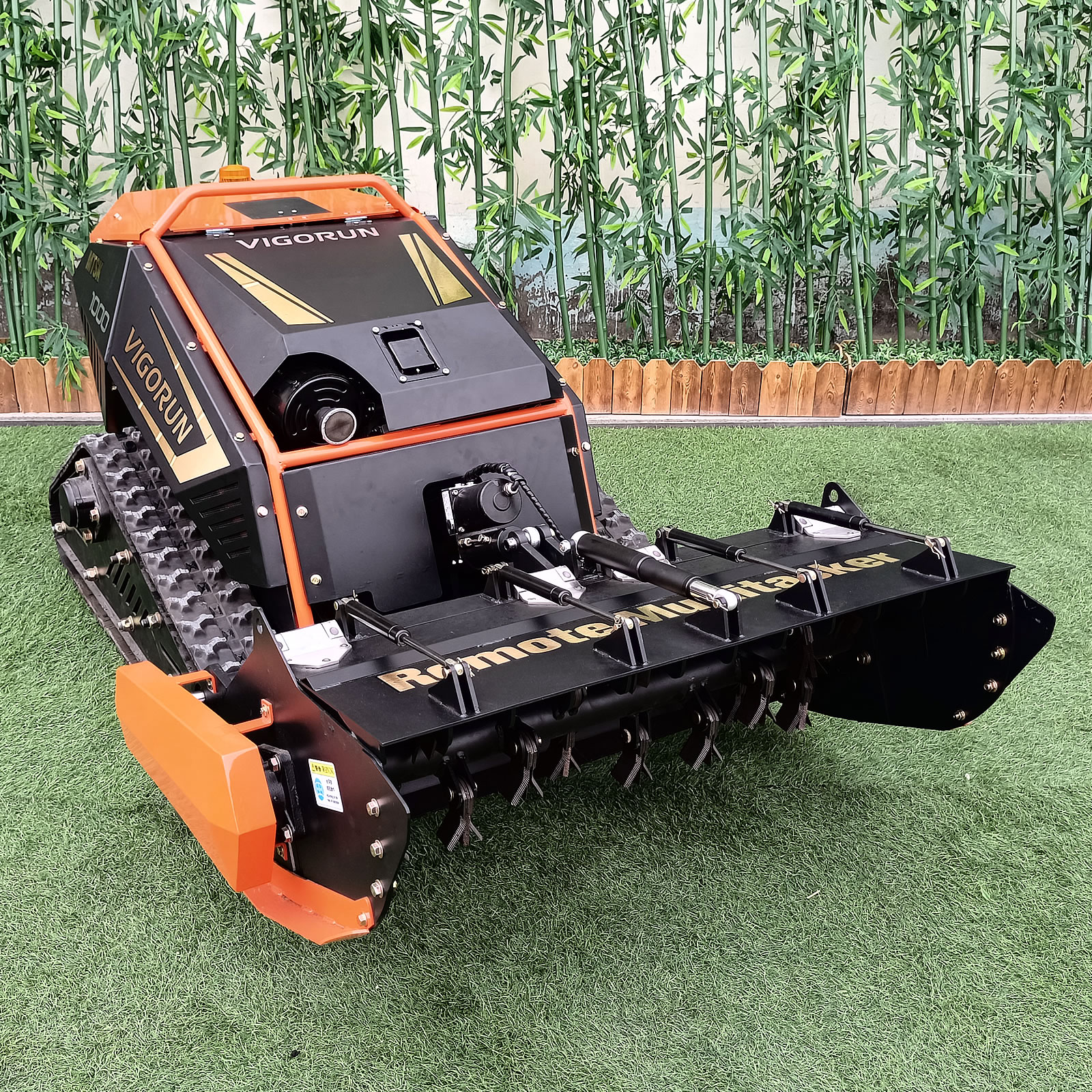
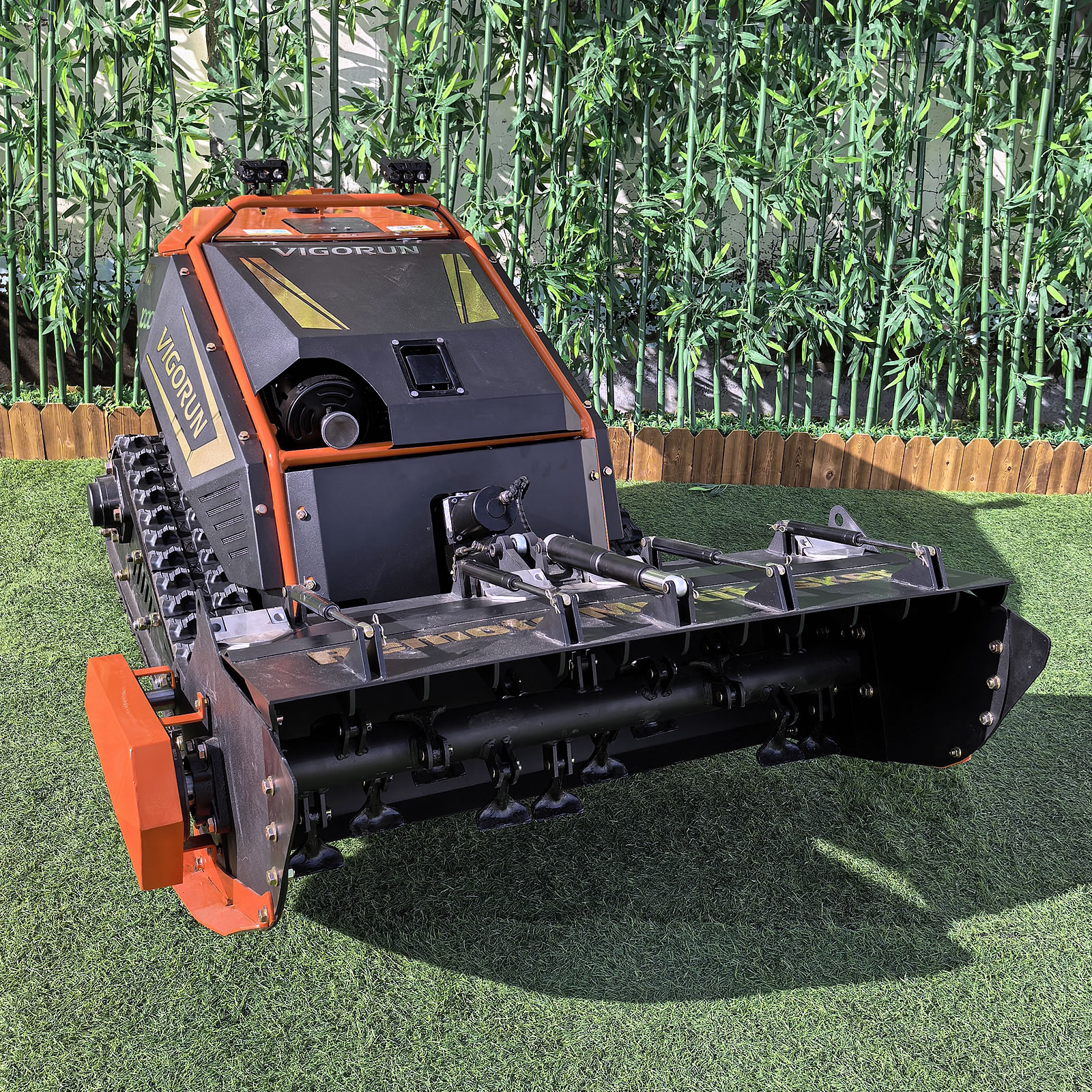 The EPA gasoline powered engine rechargeable battery tracked radio controlled flail mower features two powerful 48V 1500W servo motors. These motors ensure robust performance, especially when tackling steep terrains. With a built-in self-locking function, the machinery remains stationary without throttle input, significantly enhancing operational safety by preventing unintended movement.
The EPA gasoline powered engine rechargeable battery tracked radio controlled flail mower features two powerful 48V 1500W servo motors. These motors ensure robust performance, especially when tackling steep terrains. With a built-in self-locking function, the machinery remains stationary without throttle input, significantly enhancing operational safety by preventing unintended movement.
Advanced Technology for Enhanced Operation
This innovative mower is equipped with a high reduction ratio worm gear reducer, which multiplies the already strong servo motor torque. As a result, operators experience immense output torque for climbing resistance. Even during power loss, the friction between the worm and gear ensures mechanical self-locking, preventing any downhill sliding. This design guarantees safety and consistent performance, particularly on challenging slopes. The intelligent servo controller plays a crucial role in regulating motor speed and synchronizing the left and right tracks. This advanced technology allows the mower to maintain a straight path without the need for constant remote adjustments, ultimately reducing the operator’s workload. Moreover, it minimizes the risks associated with over-correction, especially on steep inclines.